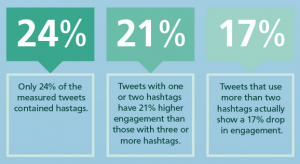In just a little over two decades, millennials and Gen Zers are expected to inherit $73 trillion from the baby boomer generation—a historic transfer of U.S. wealth. According to a Bank of America Private Bank survey released Tuesday, the new owners of this money are poised to make some very different decisions about how to invest it. The takeaway? Life could get a little bit tougher for Charles Schwab and E*TRADE.
The report, which surveyed about 1,000 adults with at least $3 million in investable assets, says the younger generation of investors is much less enamored with stocks, opting instead for cryptocurrency and other alternative investments. Roughly three-quarters of younger investors—those between the ages of 21 and 42, for Bank of America’s purposes—believe they’ll never beat the market by investing only in traditional stocks and bonds. That view is held by just 32% of the older generation, according to the report.
Embracing alternatives. Mostly crypto.
The way this breaks down is that younger people are allocating three times more of their money to alternative investments than older people do, and half as much to normal stocks. This would represent a sizable shift for the market.
Most of it is going into cryptocurrency. Forty-seven percent of younger investors hold digital assets of some kind. In fact, they allocate 15% of their entire portfolio on average to crypto. (It’s a sollid 2% for the older generation.) Older and younger people trust the same authorities for investment advice: professional advisers, crypto experts, or their own online research more than family and friends. Except half of the young people say they turn to social media for “guidance.” A third of them think crypto is a smart long-term investment vehicle, even more (35%) think it will go mainstream by 2025 to 2027, and 64% of them claim they “understand cryptocurrency quite well.”

They haven’t totally abandoned tried-and-true investment strategies.
Bank of America says a total of 16% of younger investors’ portfolios go toward alternative investments—that leaves a whopping 1% parked in something other than crypto, but it’s still something. The investments younger people believe present the best growth opportunities (if you eliminate crypto, which is No. 1) are real estate, followed by a tie between private equity and capital directly invested into companies, then ESG funds. Meanwhile, for the older folks, it’s domestic equities, then real estate, emerging markets funds, international equities, and direct investment, and finally private equity. Crypto comes in ninth for them, or third to last.
Younger investors are surprisingly into art.
Sixty-six percent of younger investors own art, versus 23% among the older crowd. Of the current owners, 83% of younger people bought a piece of art in the past year; for older people, it was 53%. Of course, if Gen Zers are collecting art, they’re doing it in a very fleeting, rebellious Gen Z way: Although two-thirds of both groups say they like art for its aesthetic value, once a piece becomes “valuable,” 42% of young people concede they’re “very likely” to sell it, compared to a quarter of older people.
(56)
Report Post




